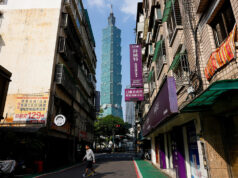Most congested city eyes limits on car ownership
By Arjay L. Balinbin
Reporter
RICARDO N. ABAÑO, a 25-year-old call center agent from Parañaque City, dreams of driving his own car someday.
“It’s difficult to go to my hometown in Bicol especially during the peak season, when commuters sleep at bus terminals to be able to get a seat,” he said by telephone.
But a proposal to ban car ownership for those without a garage is dissuading him from saving for his dream car. “Maybe I’ll think about it again once I get my own house with its own garage.”
There are several proposals in both Houses of Congress for a Proof of Parking Space Act, which seeks to limit cars on the roads — not to mention those illegally parked on main roads — and ease hideous traffic in the cities.
Metro Manila is the “most congested” city in developing Asia, according to a September study by the Asian Development Bank (ADB).
Rapid growth in car ownership and the demand for road capacity that it generates has given rise to urban congestion in many cities, the multilateral bank said. And while cities experiencing severe congestion may have invested more in road networks, the networks remain far from sufficient to alleviate congestion.
“However, it is well established that boosting road capacity does not ease urban congestion in the long run because it induces more driving,” ADB said.
“This bill is quite basic — if you don’t have parking space, you will not be allowed to register your car,” according to Senator Sherwin T. Gatchalian, one of the authors of the bill. “This bill aims to help in the alleviation of our traffic situation.”
If the measure becomes a law, car buyers in Metro Manila must present a notarized affidavit confirming they have parking space when registering their car with the Land Transportation Office (LTO).
But there are also proposals to tighten regulations further by mandating car dealers to ask for a proof of parking space before a car is sold to a buyer.
CAR SALES
“If we are really serious about this problem, we need to start at the point of purchase,” Antonio E. Inton, Jr., a former member of the Land Transportation Franchising and Regulatory Board, said in an interview.
“Car dealers must be bound by law to see to it that only those with parking space are sold their cars,” said Mr. Inton, now the president of Lawyers for Commuter Safety and Protection.
This has the car industry worried.
Vicente Jose S. Socco, chairman at GT Capital Auto Dealership Holdings, Inc., argued that a new law is not needed to get illegally parked vehicles off the roads. Local governments only have to designate no-parking areas to decongest the main roads, he said.
“Attacking illegal parking may be a more immediate and more significant solution,” Mr. Socco said. GT Capital Auto sells Toyota vehicles in the Philippines.
The Philippine car industry posted its highest monthly sales in October at 34,397 units, a 3.8% yearly growth, according to the Chamber of Automotive Manufacturers of the Philippines, Inc. (CAMPI) and Truck Manufacturers Association (TMA).
Vehicle sales have been growing since February, except for a seasonal dip in August.
Manuel Antonio G. Lisbona, president of PNB Securities, Inc. warned that the measure could dampen car sales, especially to the country’s emerging middle class.
Lower car sales could also mean lower insurance sales and falling demand for petroleum products, he said in an e-mailed reply to questions.
On the other hand, opportunities could emerge from the stricter car ownership requirements. “Owners of vacant lots could be induced to lease out their empty lots as parking areas or construct parking structures on them to maximize profit,” Mr. Lisbona said.
Mr. Inton admitted that the bill could lead to the proliferation of false affidavits and regulators would probably be unable to monitor compliance. The worst a car buyer could face is falsification charges, he pointed out.
“Do you think the LTO will sue a car buyer who made a false statement and who is already using his car? I don’t think so,” Mr. Inton said. It’s important, he added, to bar them from owning a vehicle in the first place.
Still, he admitted that the policy was unlikely to significantly ease Metro Manila’s traffic congestion problem. “I doubt it.”
Ruben Carlo O. Asuncion, chief economist at UnionBank of the Philippines, Inc., described the Gatchalian bill as “revolutionary.”
“This has not been done before and will surely bring changes in certain aspects of the car industry,” he said in an e-mail.
“It may affect sales negatively, but may help law-abiding citizens to save money,” he said, adding that this could boost domestic savings and increase investment in the economy.
“With the potential decline in sales, car insurance may also be affected. However, insurance companies and other related financial institutions may find other opportunities aside from volume, but can also raise premiums correspondingly,” Mr. Asuncion said.
The economist thinks that in the long run people can benefit from government efforts to decongest roads through critical and targeted infrastructure projects such as major public transport systems.
“This way, it can also help many commuters who may largely gain from new and efficient means of travel around economic hubs in the country,” he said.
Mr. Abaño, mentioned at the outset, does not mind stricter car ownership rules. “Why is there traffic congestion? Because people don’t follow traffic rules. Maybe requiring parking is just one of the solutions.”



